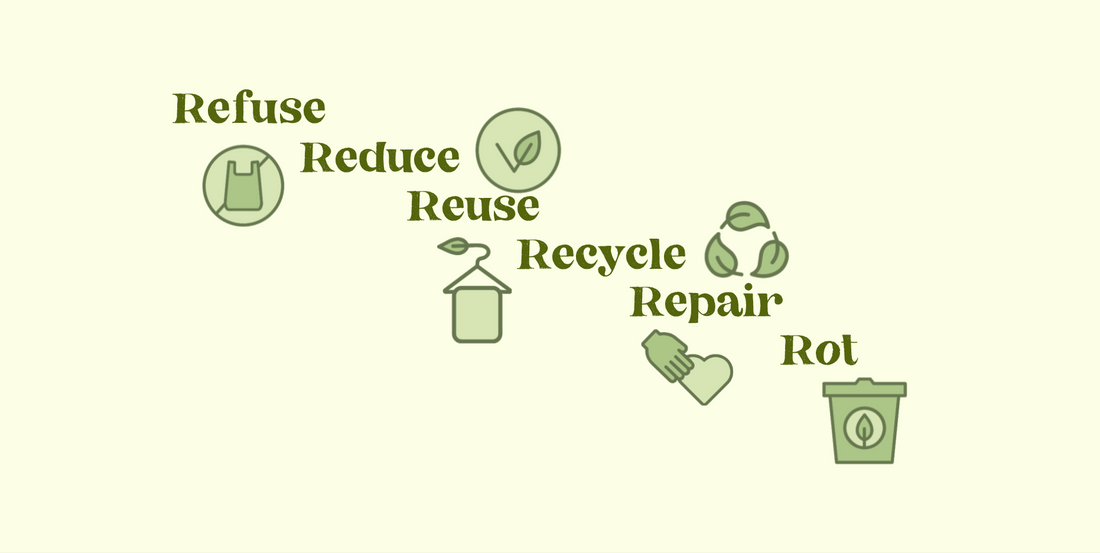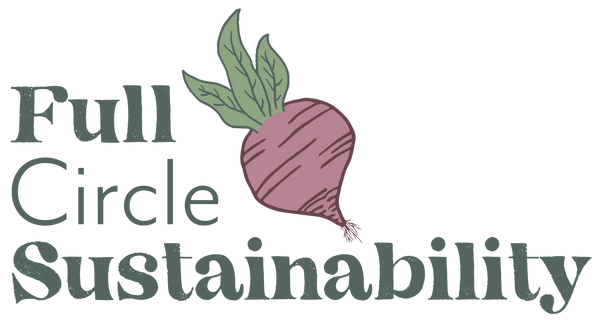
Step 1: Refuse
A few months ago, I was listening to a podcast on decluttering, which is something that’s always on my mind. My Type A brain loves order and longs to have less. But it can be hard for me to chuck things out, and these lines from the podcast captured exactly why:
“You’re bumping up against those feelings that we have in a disposable, consumer-driven society, which is: ‘What a waste! What a waste of that tree that created the chopsticks, what a waste of the plastic that’s housing the chopsticks.’ So we’re not just dealing with clutter, we’re looking at our value system. You holding onto those chopsticks is saying, ‘I don’t want to waste on our beautiful, precious planet.' And it’s really complicated because we live in a world where to not accumulate excess requires a next-level ferocity of saying ‘no.’ And then we wonder why we’re all kind of drowning in stuff. We have so much thrown at us all the time.”
I spend so much time wanting to say “no!” fiercely to people as they are trying to give me things! From plastic bags at the grocery store to glossy flyers on the street to packaged product samples and single-use silverware and to-go containers. And that’s to say nothing of actual gifts: birthday presents and party favors and articles of employee appreciation that inspire brief moments of joy before making their way to a closet then thrift store then foreign country then landfill.
If you just stand in the wind tunnel of America, you will be hit with plastic bags and styrofoam takeout containers and disposable everything. If you do not make a conscious effort to avoid it, it will hit you with tornadic force. But even trying to avoid it is not enough. It’s the first step and a very important one. But to actually prevent it from hitting you, you have to start refusing it. Actually saying “no.”
That can be hard because the giving is well-intentioned. The cashier who insists I take a bag thinks they are helping me out. But if you don’t tell them no, you will not only end up with a plastic bag you don’t want, the cashier will never learn that some people actually don’t want a bag. They’ll continue offering and insisting, which means you will continue dealing with the issue forever. By saying no now, you can help change the defaults and norms and mental models that keep society throwing things at you.
Even when your refusal feels fierce, it doesn’t have to come across that way. You can refuse with a smile, “thank you,” and good-natured tone—as long as it’s firm enough to do the job.
At a party, for instance. If the host tries to hand you a plastic cup, say, “Oh, no thanks, I brought my own,” and pull it out of your bag. You don’t need to make a big deal of it or say any more unless they ask you. Just politely refuse.
Part of refusing is having open and honest conversations with your family and friends about your values when it comes to waste. That will look different with different groups of people. You don’t need to go into long explanations with everyone you know, and simply modeling behavior will go a long way.
If someone gives you a birthday present in a gift bag, ask them, “Would you use this bag again if I give it back to you?” That’s a way to refuse without using any negative words. Shift the burden of the stuff right back onto them. Convey your values and show people that—while you respect their right to make their own choices—you are not going to let their values keep you from living according to yours.
I don’t mean to make this “refusing” thing sound easier than it is. I understand how hard habits can be to break, and I understand the difficulty of bending social norms and standing up to social pressure. Refusal is not easy; it’s radical, and you won’t always succeed. But it’s the best way we have to stop the tornado of stuff that’s swirling around us. It’s how we can prevent the destruction rather than spending our time trying to reuse and recycle all the bits of debris it leaves in its wake.
-Justine, Full Circle Sustainability



